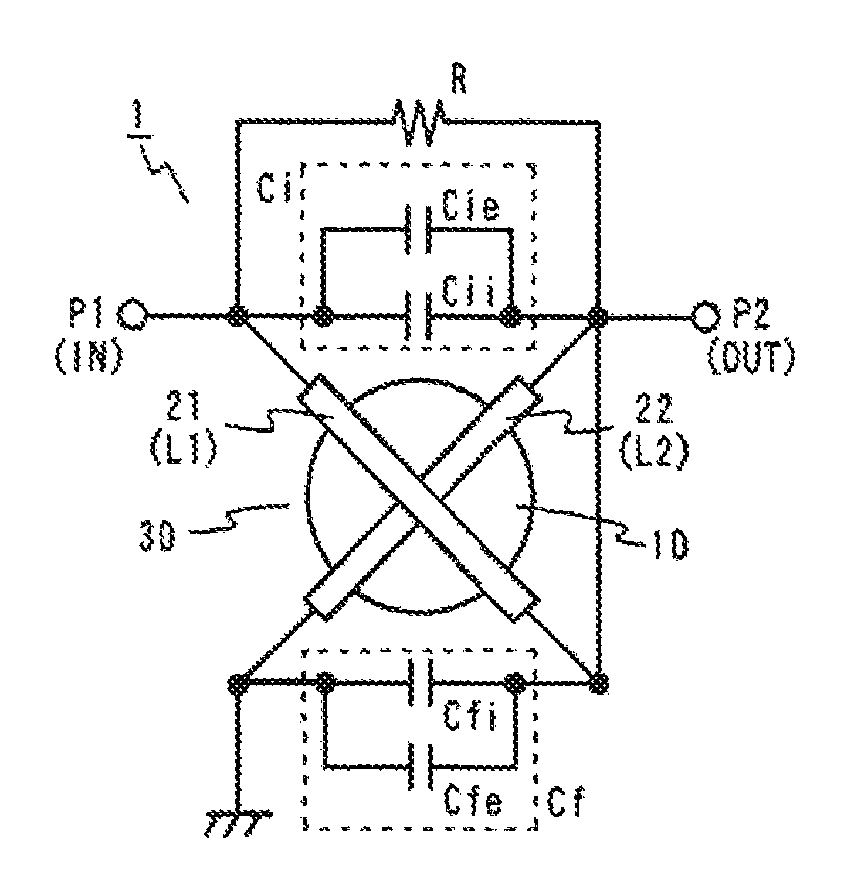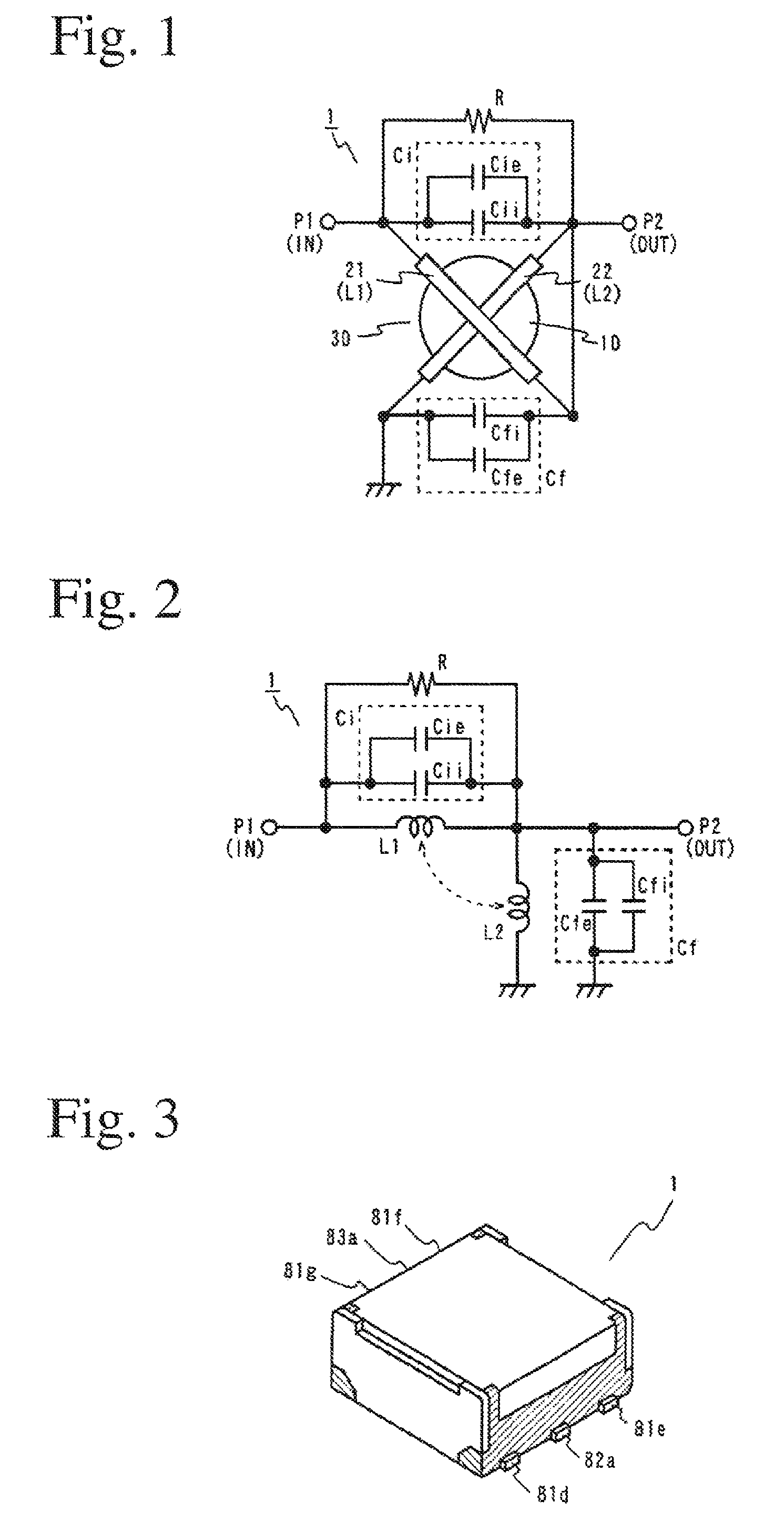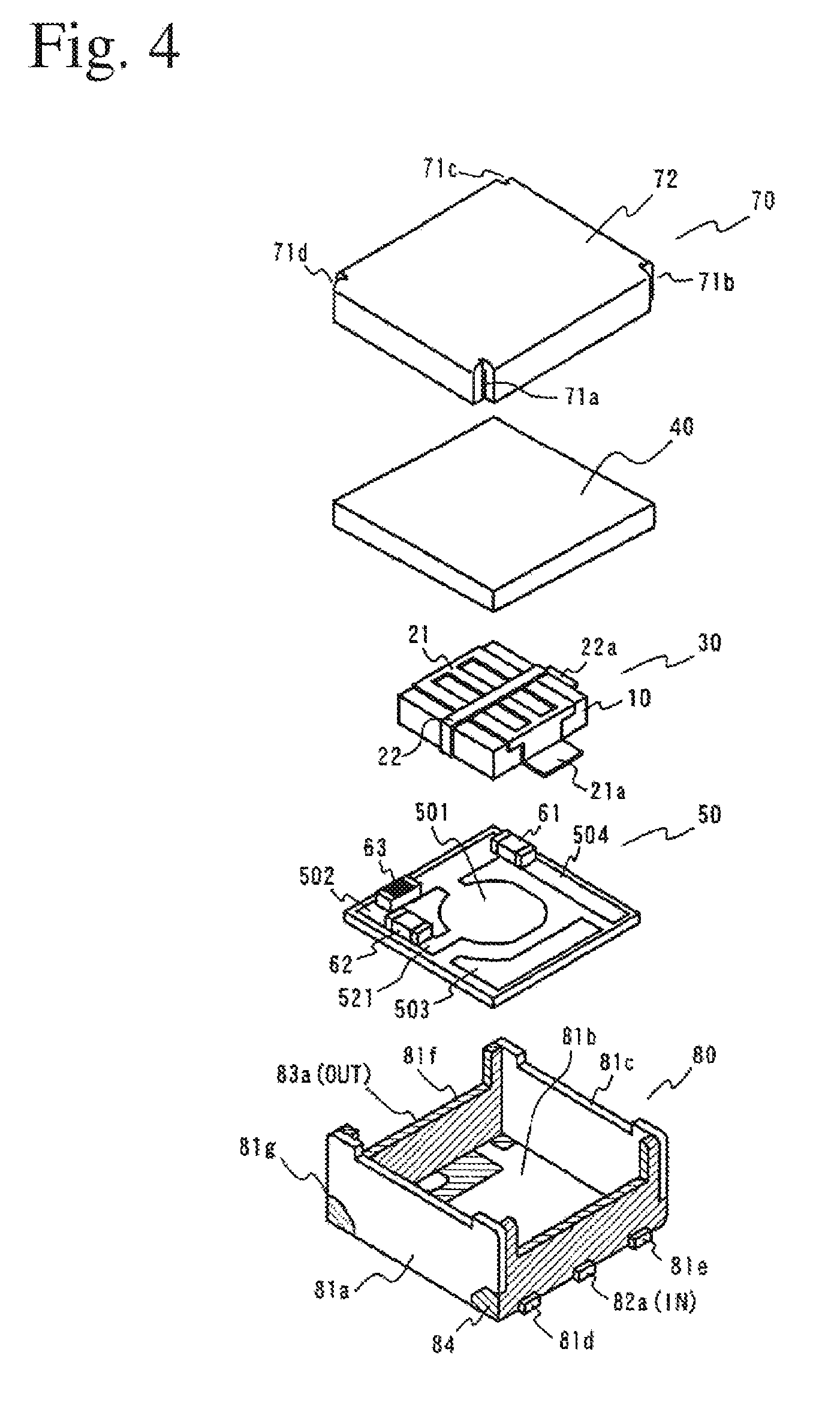Non-reciprocal circuit device
a circuit device and non-reciprocal technology, applied in the direction of fixed capacitor details, electrical apparatus, fixed capacitor combinations, etc., can solve the problems of reducing production yield, many two-pair terminal isolators failing to have the desired electric characteristics, etc., and achieve excellent electric characteristics and reduce capacitance variations.
- Summary
- Abstract
- Description
- Claims
- Application Information
AI Technical Summary
Benefits of technology
Problems solved by technology
Method used
Image
Examples
example 1
[0071]With the capacitors Cii, Cfi formed in the multilayer substrates set to have capacitances of 27.6 pF and 17.1 pF, respectively, about 5% smaller than the set values of the first and second capacitance elements Ci, Cf. pluralities of motherboards each having 1500 (50×30) multilayer substrates were produced. The capacitance distribution of the capacitance elements Cfi in 1500 multilayer substrates arbitrarily selected from those obtained by dividing these motherboards is shown in FIG. 13. The capacitors Cfi had capacitances varying in a range of 16.6-17.8 pF like those of Conventional Example 1.
[0072]With respect to each of these multilayer substrates, the capacitance of each capacitor Cfi was measured, and when the measured value was 16.6 pF or more and less than 17.0 pF, a chip capacitor of 1.2 pF as a correcting chip capacitor Cfe was mounted onto the multilayer substrate. Similarly mounted were a chip capacitor of 1.0 pF when the measured value is 17.0 pF or more and less th...
PUM
| Property | Measurement | Unit |
|---|---|---|
| angle | aaaaa | aaaaa |
| capacitance | aaaaa | aaaaa |
| capacitance | aaaaa | aaaaa |
Abstract
Description
Claims
Application Information
 Login to View More
Login to View More - R&D
- Intellectual Property
- Life Sciences
- Materials
- Tech Scout
- Unparalleled Data Quality
- Higher Quality Content
- 60% Fewer Hallucinations
Browse by: Latest US Patents, China's latest patents, Technical Efficacy Thesaurus, Application Domain, Technology Topic, Popular Technical Reports.
© 2025 PatSnap. All rights reserved.Legal|Privacy policy|Modern Slavery Act Transparency Statement|Sitemap|About US| Contact US: help@patsnap.com



